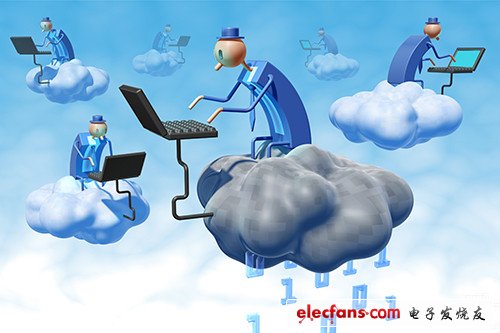In-depth cloud computing reveals seven unsolved mysteries
As cloud computing continues to be hot, people are gradually gaining a deeper understanding of what cloud computing is. However, the more you understand, the more problems it brings. This is exactly an endless cycle. More knowledge will bring more unknowns, and more unknowns are precisely the main meaning of our continuous digging into the market value of cloud computing.
In 2013, after last year's hot speculation, people learned more about cloud computing, and more "unsolved mysteries" emerged. These "unsolved mysteries" do not represent unsolved results, but rather the dilemma or confusion people face in the current deployment and application of cloud computing.
1. Who will pay?
This is the most concerning issue. IT departments have already invested very high costs when deploying cloud computing platforms, and these costs are ultimately converted to cloud service projects. These costs will become nowhere to be found due to the dispersion of different projects.
Second, is cloud really cheap?
Although cloud computing is based on providing services on demand, in the long run, the cloud computing model may not be cheaper than the hardware and software costs of buying local systems. Because in this process, the company always pays for services it never had.
3. Do cloud service providers put their business in the cloud?
From a supplier's perspective, local systems can definitely create more value than cloud services. Therefore, in the short term, suppliers may not necessarily allow users to migrate. But vendors will reap huge rewards from the migration, especially if there are business services that the vendors lock in.

4. Is cloud computing moving against the open trend?
Local services generally require open back-end interfaces, but for cloud services, this openness may not be required. Is this a counter-current trend?
5. Who is in control of cloud data?
When everyone is enjoying cloud services, there is a question that deserves attention. Who owns the ownership of these cloud data?
6. Is cloud data more secure than local?
For those who accept cloud computing, they believe that data stored in the cloud is more secure than stored locally. For example, when you delete a file by mistake or a hard disk failure occurs locally, you can use cloud data to restore it. However, if the employees of the cloud computing provider's data center do not have sufficient security skills, the consequences are worrying. In contrast, are third-party IT employees really credible.
7. Does the cloud data center save resources?
With the landing of cloud computing, more cloud data centers have appeared around the world. Although these data centers have extremely high energy efficiency and green energy saving, they consume a lot of energy. The fact is often that resources saved in this area often waste resources in other areas.
Zebra Cleaning Kit,Zebra Cleaning Card,Zebra P330I Cleaning,Zebra Zxp Series 7 Cleaning
Miraclean Technology Co., Ltd. , https://www.mrccleanroom.com
